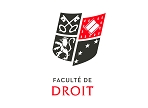Présentation
European institutions, Public policy
This course should provide theoretical tools and empirical cases that allow students to understand and analyse European Union’s policies and policy-making processes. Drawing on concepts from Political Science, Law and Economics, we will examine various types of EU policies (such as agriculture, budget, economic and social affairs, to name a few) and try to understand how European policies are made concretely (and not only in the books) in Brussels.
By the end of the course students should be able to:
- Identify the main features of key EU policy areas (for example, trade, environment, security, agriculture, monetary union, foreign policy, employment, gender, among others);
- Understand the main decision-making procedures used in EU policy-making, and describe the difference between Intergovernmental and Community methods;
- Establish relations between treaty revisions and policy change in the EU, thus relating Law and policy-making;
- Collect and organize data about European Policies from different sources. Students will search for and assess information from the media, as well as from government and academic sources.
- Approach various EU policies and the role of Member States from an analytical perspective.
Lectures are the core of the course. Students are required to attend the lectures.
Links to complementary texts (newspaper articles, briefings) or materials (online videos, for example) are provided in the syllabus or along the course.
The slides used in class will be made available after the corresponding lecture. The slides do not substitute the readings. Their goal is to remind students of the topics seen in each session, and to update and/or complement information that might be missing from the texts.
Please note that the course schedule may be changed in order to accommodate class exercises or to allocate more time to specific points of the program.
Session 1 - Friday 21 September 2018 (10-12 am)
Introduction
Presentation of the course. Introduction and main concepts. Historical account of the integration process in the European Union
Mandatory readings:
- Introduction of Cini, M.; N. Borragán, European Union Politics, Oxford University Press. 5Th edition, January 2016, pp. 1-8
Complementary materials:
- · https://www.eu2018.at/
- Elie Wiesel, “Hope, Dispair and Memory”, Nobel Lecture, 11 December 2006
- Europe in 12 lessons, 2017
- Simone Veil, European political pioneer, European Parliament Research Service, Philippe Perchoc, July 2017
- Helmut Kohl, citizen of Europe, European Parliament Research Service, Philippe Perchoc, June 2017
- A detailed online archive on the development of European integration
- The EU’s own website includes a good chronology of events in the history of the European integration process.
Session 2 - Monday 1 October 2018 (9-12 am)
How does the EU work? What does the EU do?
Memo: the main objective of this session is not to describe EU institutions (there is an entire course on the topic), but to discuss how these institutions relate to policy-making and implementation in the EU
How does the EU work? Understanding the EU. EU Institutions. Decision and policy-making processes. Interest groups. What does the EU do? Main features of EU policies and policy-making processes. Historical trends. What about Europeanization?
Mandatory reading:
- « 4.1. The main European Institutions », Europedia.moussis.eu, based on the book of Nicholas Moussis, Access to European Union law, economics, policies, June 2016
.Complementary reading:
- Bomberg et al., “Key policies”, chapter 5
Students’ presentations:
- What is Europeanization?
Session 3 - Monday 8 October 2018 (9-12 am)
The EU budget and the multiannual financial framework
The EU budget; the Multiannual Financial Framework ; EU funds
Mandatory reading:
- “3.4. The finances of the European Union”, Europedia.moussis.eu, based on the book of Nicholas Moussis, Access to European Union law, economics, policies, June 2016
Complementary texts
- EU budget for the future, European Commission, 2018
Students’ presentations:
- The EU Own resources
- The “EU budget for the future” or the future budget of the EU 2021-2027
- The European Globalization Fund
Session 4 - Monday 15 October 2018 (9-12 am)
The single market
The Economic and Monetary Union. The Eurozone. The Euro.
Modalités
Assessment will consist of in:
- class activities - 30%
- written exam with multiple choice (QCM) and discursive questions (questions de réflexion). The written exam covers the mandatory readings, the presentations and topics discussed in class – 60%
- participation during the courses. Participation refers mainly to attendance and punctuality. Active engagement in class discussions will also be considered – 10%






